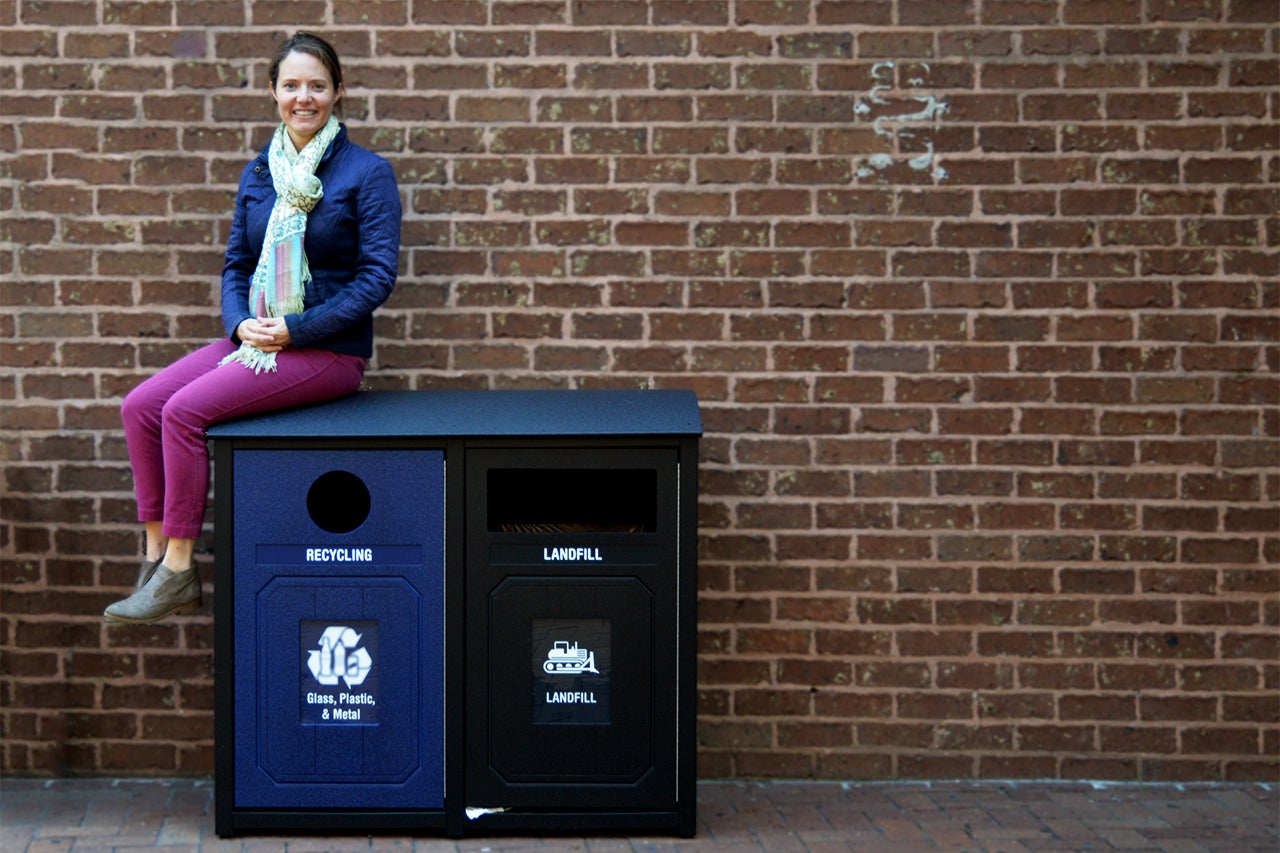Over the past decade, single-use plastic products have been recognized as a serious threat to the environment. That’s the principal reason why Charleston City Council voted last year to ban most single-use plastic products beginning in 2020. And staff members at the College of Charleston are taking steps to ensure that the institution will be in full compliance when this new ordinance takes effect on Jan. 1.
Much of the work preparing for this shift has been guided by Darcy Everett, the climate manager and zero waste coordinator for the College’s Office of Sustainability. Everett has been working on this issue since she started at the College last summer. She says that across campus, administrators and faculty are adopting operational changes that will enable the institution to comply with the requirements of this new citywide ordinance.
“This new ordinance presents a real opportunity for the College to be a leader in our community,” Everett says. “I’m excited that our campus will be ready by the new year. It is a testament to the hard work and planning efforts on the part of all our partners at the College.”
Everett says that the College’s Office of Dining Services has started by eliminating the use of Styrofoam products, which are prohibited under the ordinance. Campus dining facilities such as Marty’s Place have been using compostable knives, forks, spoons and straws for over a year. In addition, the managers of two other campus eateries (Liberty St. Fresh Food Company and City Bistro) continue to encourage diners to use reusable to-go boxes.
The food court in Stern Student Center and the small markets on campus have also swapped plastic bags for paper and have introduced compostable service materials. And later this month, the university bookstore will run through its final supply of plastic bags.
For Everett, these changes offer a special satisfaction. It was local efforts to reduce plastic waste and protect Lowcountry wildlife and waterways that partially inspired her to move south from Charlotte and work at the College.
“Early in my career,” she says, “I worked at an interior design firm that supported corporate clients with major renovation projects. This largely meant tossing office desks and chairs into massive dumpsters and starting over, and I quickly realized that I was part of the problem.”
Everett quit that job and moved to Arizona where she joined architects, designers, planners, scientists and artists from diverse backgrounds in a unique program that provided hands-on experience and education in how to balance natural and human systems.
“My parents thought I was crazy,” she says, “but it turned out to be the best thing I ever did. It changed the path of my adult life.”
Everett went on to study global sustainability at the University of South Florida and ultimately landed on the Charlotte campus of UNC working to reduce waste for that institution. This experience, paired with her collaborative spirit and passion for climate issues, is helping her advance the College’s sustainability goals, including generating zero waste by 2025.
Even with the new citywide ordinance, more progress is possible, she says.
“For instance, our move away from single-use plastic will likely mean the expansion of another kind of waste — compost. Yet we don’t have a lot of opportunity to collect compost on campus,” says Everett. “If you get food to go from Marty’s Place, you have access to compostable serviceware and a compost bin. But if you’re in a residence hall or a classroom building, you’re most likely throwing those compostable materials in the trash, and that’s not good.”
Everett has observed some confusion on the part of faculty, staff and students regarding what belongs in blue bins versus trash cans. She plans to launch educational trainings soon and gather real-time waste bin data. Everett also plans to establish more compost collection spots on campus.
Fundamentally, she says, transitioning to truly sustainable operations at the College will require both individual and collective behavior change. So, what’s her advice for individuals? Attend one of the City’s upcoming plastic ordinance workshops, and learn what is recyclable and what isn’t. Incorporate reusables into your daily routine. And check out a recycling bin from the Office of Sustainability.
“It’s up to all of us,” she says, to “think before we throw.”
Featured image: Darcy Everett is the climate manager and zero waste coordinator for the College’s Office of Sustainability.





